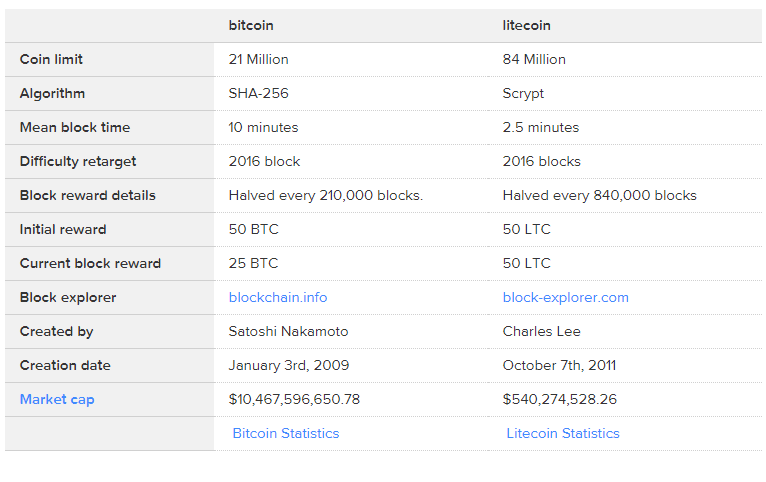In 2009, Satoshi Nakamoto propelled bitcoin as the world's first digital money. The code is open source, which implies it can be changed by anybody and unreservedly utilized for different undertakings. Numerous digital forms of money have propelled with altered renditions of this code, with shifting levels of achievement.
Litecoin was reported in 2011 with the objective of being the 'silver' to bitcoin's 'gold'. At the season of composing, Litecoin has the most noteworthy market top of any mined digital money, after bitcoin.

Transaction Difference
Actually, exchanges happen immediately on both the Bitcoin and Litecoin systems, time is required all together for those exchanges by other system members. As indicated by information from Blockchain.info, the Bitcoin system's long normal exchange affirmation time is a little more than 9 minutes for every exchange.
The proportionate figure for Litecoin is about 2.5 minutes, as per information from BitInfoCharts.com.
On a basic level, this distinction in affirmation time could make Litecoin more appealing for dealers. For instance, a dealer offering an item in return for Bitcoin would need to hold up about four times as long to affirm installment as though that same item were sold in return for Litecoin. Then again, vendors can simply select to acknowledge exchanges without sitting tight for any affirmation whatever.
The security of such zero-affirmation exchanges is the subject of some level-headed discussion. Be that as it may, late developments, for example, Bitpay's proposed Inter-Channel Payments framework (nicknamed "Motivation") may make these sorts of quick exchanges altogether more secure, relieving Litecoin's speedier affirmation time advantage.
Quite informative. Bitcoin is more popular but it takes longer to confirm payments. At the moment, Litecoin is a nice alternative, but with Bitpay's proposed Inter-Channel Payments framework the advantage might be gone.
Yes bitcoin has most popular but Litecoin is also best in transaction